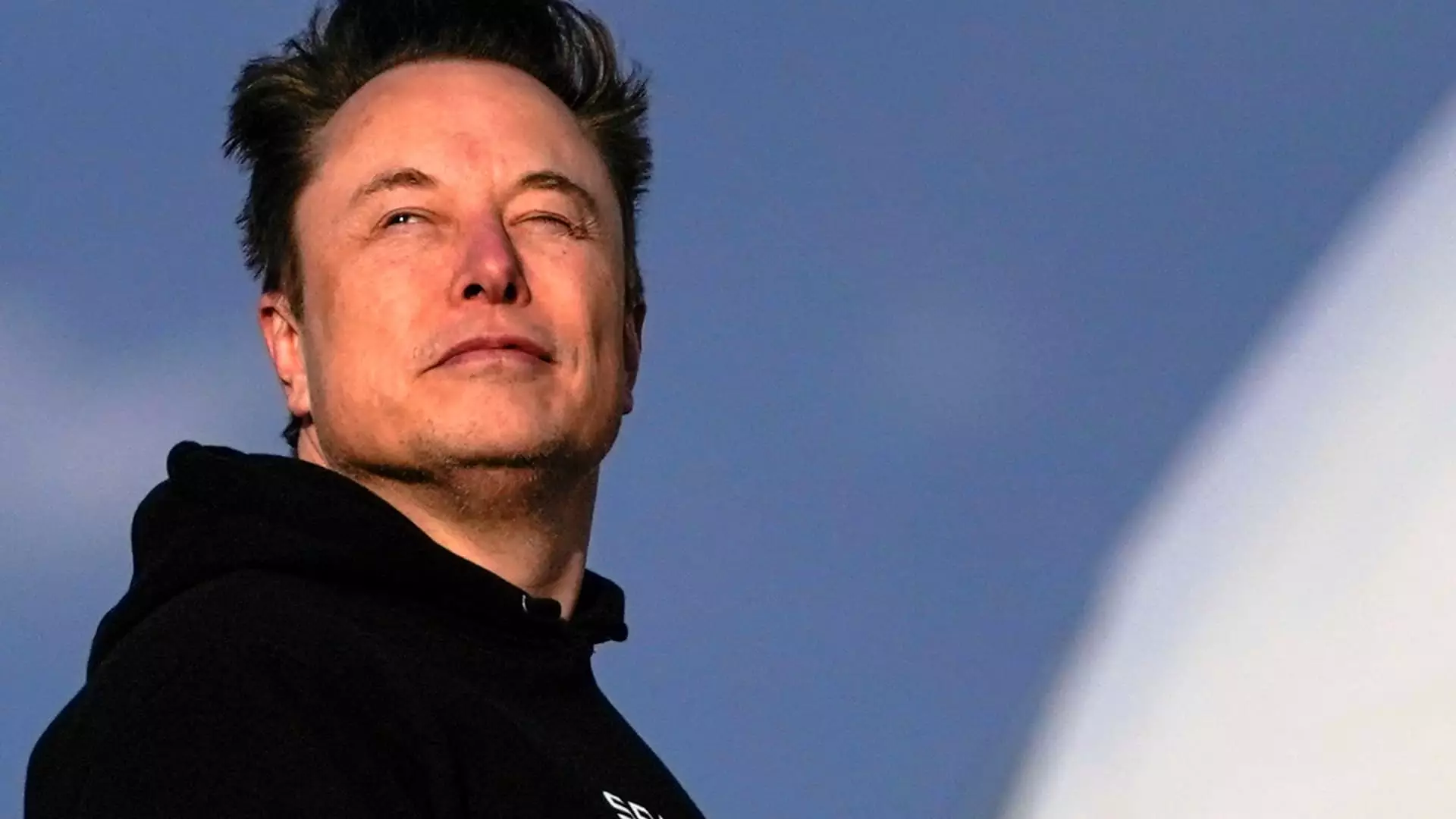In a move that has sent shockwaves across the technology landscape, Elon Musk announced the merger of his artificial intelligence company, xAI, with the social media platform X (formerly Twitter) in a transaction valued at $113 billion. This audacious melding of forces not only paints an ambitious picture of Musk’s vision for the future but also raises crucial questions about the implications of such a consolidation in the tech ecosystem.
Understanding the Financial Landscape
At first glance, the merger—which values xAI at a staggering $80 billion and X at $33 billion—may appear to be a stroke of genius. Musk’s tweet post-deal declared that “the futures of xAI and X are intertwined,” suggesting an intricate dance of potential and opportunity. However, dissecting the financial nuances reveals a more complex narrative. The initial price tag of $45 billion is tempered by $12 billion in debt, implying a more intricate stock swap than a straightforward acquisition. Investors who hold stakes in both companies—including major players like Andreessen Horowitz and Sequoia Capital—must navigate this convoluted transaction with cautious optimism.
This merger exemplifies the intersection where innovation meets capital, but we must scrutinize whether the union will yield the desired synergy or simply create a more labyrinthine structure that could impede both entities’ agility. With both companies firmly under Musk’s control, concerns about transparency and accountability emerge. There is no independent evaluation; everything hinges on Musk’s vision—or his whims, depending on one’s perspective.
AI Ambitions vs. Ethical Concerns
Musk launched xAI with the grandiose mission of “understanding the true nature of the universe.” Yet this high-minded goal sits uncomfortably alongside the very tangible challenges posed by such rapid AI advancements. The electric energy pulsating through the tech sector often overshadows ethical considerations, leading to potentially reckless implementations. xAI’s Grok chatbot has already begun its integration with X, offering tantalizing possibilities for users. However, as history has shown, the race in AI comes laden with significant societal implications that cannot be ignored.
Opponents of this merger would argue that the accelerated pace of technological deployment, particularly in light of concerns from environmental and public health advocates regarding the proposed supercomputer facility in Memphis, speaks to a broader theme of unchecked ambition. Critics worry about the lack of community input and the environmental footprint of such technologies. Musk’s focus on large-scale projects often seems to eclipse the voices of those who will be directly impacted.
The Intersection of Tech and Politics
What makes this situation even more intriguing is the interplay between Musk’s business ventures and his positioning within the political landscape. Having made a hefty contribution of nearly $300 million to Donald Trump’s campaign and other Republican causes, Musk finds himself at the nexus of government efficiency under the newly formed Department of Government Efficiency (DOGE). Here, he is tasked with cutting government expenses and regulations—a role that not only benefits his businesses directly but also raises questions about ethical governance when business interests and policy-making overlap.
The implications of this entanglement are profound. Can Musk’s interests in efficiency and profitability coexist with public welfare, or will the former become the priority? The convergence of AI development, social media influence, and political maneuvering could result in the creation of a marketplace that does not merely reflect societal needs but distorts them to fit a profit-driven model.
A Precedent for Future Mergers?
This merger isn’t Musk’s first rodeo with redefining ownership in technology. The 2016 acquisition of SolarCity by Tesla raised flags regarding conflict of interest and fiduciary duty. Similar questions arise with the xAI-X merger. While Musk celebrated the deal as innovative, skeptics will likely be watching to see if history repeats itself—whether shareholders will feel the brunt of a venture that, on the surface, benefits Musk and his conglomerate more than it enhances the market on the whole.
Merging high-stakes technology companies can send ripples across sectors—transforming not just the companies involved, but the very fabric of our digital ecosystem. Musk’s venture could either usher in a new era of technological harmony—a beautiful confluence of AI and social networking—or it could plunge us into unprecedented ethical dilemmas, exposing vulnerabilities that we have yet to fully comprehend.
The merger of xAI and X serves as a poignant reminder that while innovation has the power to propel us forward, it also carries the weighty responsibility of navigating the societal implications that accompany such rapid progressions. In an age where tech giants shape our daily lives, the stakes have never been higher.

